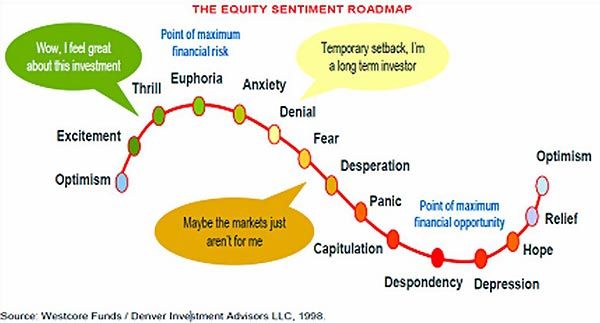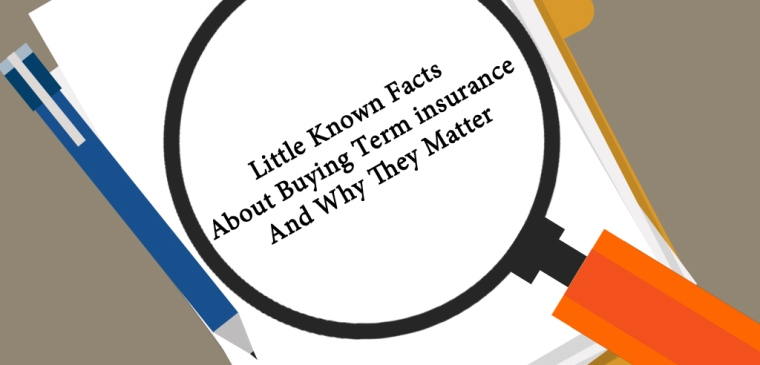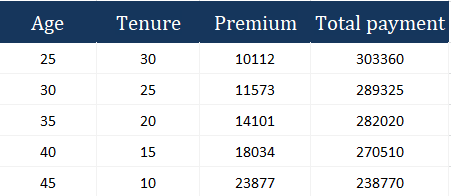Looks like people are very much interested in learning about Derivatives. Let me try to put basic things about Derivatives.
Read how you can Hedge your portfolio using PUT options

Let me first talk Good things about Options
If there is anything in world which can make you instant rich, it’s Options Trading !!! What is instant Rich here !! Instant can indicate anytime from 10 days to 5-10 yrs. It depends on you how much risk you want to take. Options can deliver returns which you can never imagine.
You can get returns in a day equivalent to what you get in 8 years in Fixed Deposit !! 10% return in a week is what I call a realistic average return in long term after risk management.
Just to give an example, if you start with 15,000 and take 10% profit each week, you can generate 1 Crore in 1 year (compounded basis).
How to Trade options?
To just like people trade in Stocks, shares, they can trade in Options .. Buy them at a cost and selling it later at some profit or Loss. The main difference in options trading and Stock trading is that Options trading also has time limit attached to it. That’s makes them more dangerous.
There are some selected shares which have options for them. Almost all the well known stocks have their options. Nifty index also has an option for it.
Almost 85-90% options trading happen in NIFTY options … Each stock option have lot size, like NIFTY lot size are 50. So if the price for NIFTY 2600 CA is 90, 1 lot will cost you 4500. And suppose the price reaches to 200, you can sell it and get 10000, 5500 of profit – brokerage charges.
Some other very good stocks for options trading are RELIANCE, ICICIBANK, CHAMBAL FERTILIZER, JAIPRAKASH ASSOCIATES and many more.
Watch this video to learn more about Options trading:
Some Experiences I can remember
I have often seen an option rise anywhere from 2 times – 50 times.
Just 2 days before NIFTY made the lowest of 2250 in OCT, NIFTY was at 3000, and I bought NIFTY 3000 PA at 60 (NIFTY was at 3000 and 3 days left to expiry). Within 5 min, it went up to 90 and started coming back down .. I sold it at 88 and took good profit of 40% …
Just after I sold it market starting going down and it went up to 200.
Next day market tanked heavily and the price was now 500.
Next to Next day market again tanked heavily and option price was now 750.
Something I bought at 60 was at 750 after 2 days and I sold it at 88. Anyways .. I made good profit and I was happy (It’s a white lie, you know that)
This is a little extreme case, but in general options can give close to 50% – 200% return in short duration. Scenario is very different at the starting of month and at the end of month because of Options expiry. At the time of options expiry, the change in price is significant because of the time value and uncertainty.
How Risky Options Are?
If you don’t fear anything in World, better you fear Options .. It can wipe you out within days … It’s a Money eating machine. You can lose all your money if you are not focused or don’t have knowledge or good money management.
If you are trying hard to lose money and you are not successful, try options ..Warren Buffet calls Derivatives as “Weapons of mass destruction”, I agree with him, but I also differ on the fact that options have the power to make you super rich if you can use it effectively and with intelligence and without GREED.
Advice
If you want to try options trading, first learn about it heavily .. Read books, read stuff .. Watch it for 1-2 months .. See the behavior and once you are confident that you can make some money .. enter with small money (because you are going to lose) …
Don’t feel back after losing money, think of it like “Guru-Dakshina” … everyone has to give it in the start, you are no exception. Now go back .. Again read some more books, Do some virtual trading, and once you are confident again start with small money (which you can afford to lose) .. And start doing the trading slowly step by step … Don’t put all your money in one go .. Else you will cry later.
Disclosure
I have been trading options from last 6 months and still I am in loss and way far than break even .. Please don’t take it as my advice to trade option; it’s just for informational and sharing purpose .. You are yourself responsible for your losses.
“I thought Women are complicated and tough to handle, then I met Options” 🙂





